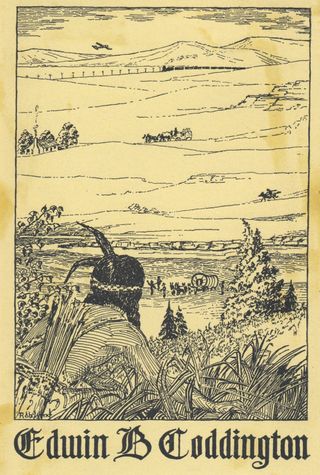Extracts, the Melville Society’s newsletter from 1969 to 2005, is freely available online, including an index to a few dozen of the issues (number 49 to 72). Once upon a time, there also existed online an index to all the issues of Extracts. I seem to remember that this index was hosted on the site of someone not officially associated with the Melville Society. I also remember that when cross-referenced with the page images of the newsletter itself, it was very useful for tracking down odd bits of information about Melville not readily found elsewhere. But Google can’t tell me where this index is anymore, if indeed it still exists. Does anyone know?
Author: Caleb Crain
Reading for a living
Over at the Boston Globe‘s Brainiac blog, Christopher Shea relays the news that NPR has a new slideshow up about jobs that no longer exist, including copy boy, bowling pin setter, and lector, a person paid to read aloud to people rolling cigars by hand.
I knew I’d heard about this job before, though it took me a minute to remember that it was in James Weldon Johnson’s lovely 1912 novel Autobiography of an Ex-Colored Man:
After I had been in the factory a little over a year, I was repaid for all the effort I had put forth to learn Spanish by being selected as “reader.” The “reader” is quite an institution in all cigar factories which employ Spanish-speaking workmen. He sits in the center of the large room in which the cigar makers work and reads to them for a certain number of hours each day all the important news from the papers and whatever else he may consider would be interesting. He often selects an exciting novel, and reads it in daily installments. He must, of course, have a good voice, but he must also have a reputation among the men for intelligence, for being well posted and having in his head a stock of varied information. He is generally the final authority on all arguments which arise; and, in a cigar factory, these arguments are many and frequent, ranging from discussions on the respective and relative merits of rival baseball clubs to the duration of the sun’s light and energy—cigar making is a trade in which talk does not interfere with work. My position as “reader” not only released me from the rather monotonous work of rolling cigars, and gave me something more in accord with my tastes, but also added considerably to my income. I was now earning about twenty-five dollars a week . . .
The narrator is even able to afford to hire a piano.
Update (March 24): Jenny D. just relayed to me the news that on Thursday, March 25, at 7pm, here in New York, the Americas Society is hosting a reading by Araceli Tinajero from her new book El Lector: A History of the Cigar Factory Reader. (Alas, I won’t be able to make it, because I’m chained to my laptop impersonating El Escritor until further notice.)
Further update (later on March 24): The topic reminds my friend Gabe of Felipe Jesus Consalvos, a cigar roller in the early twentieth century who incorporated cigar boxes into his outsider-art collages.
And still more: Irin Carmon tells me via Twitter that there’s also a 2007 short documentary film about cigar lectors, With a Stroke of the Chaveta.
Mixed up
Since Peter posted a mix on 8tracks, I decided I would, too. His is of songs from 1991; mine, of songs from the last baker's dozen months.
Into the horizon
I found this bookplate, unglued but still tucked into the front endpapers, in a history that I spent today reading. The book, which I bought used last week, was published in the 1930s; the Internet tells me that Edwin B. Coddington, its sometime owner, was the longtime chair of Lafayette College’s history department and wrote the definitive history of the Battle of Gettysburg, published in 1968, some time after his death. I like the way the bookplate evokes the idea of American history. I’ve been using it as a bookmark, and I must have looked at it half a dozen times before I had a Sesame Street moment and realized that the Indian and the airplane don’t belong in the same picture.
Free piracy today only
With a brilliant sense of the à propos, the University of Chicago Press has emailed me to say that they're making Adrian Johns's history of intellectual piracy (mentioned in my post on Saturday night and reviewed by me in The National (Abu Dhabi) last week) available today only as a free e-book download. If it's still February 1 when you're reading this, you can get a free electronic copy of Adrian Johns's Piracy: The Intellectual Property Wars from Gutenberg to Gates, by clicking here.
Update, Feb. 5: A reader alerts me that although Mr. Johns's Piracy is no longer available as a free e-book, his earlier work, The Nature of the Book: Print and Knowledge in the Making, also à propos, has been made available for free instead, at the same link. Not sure how long this will last, of course, . . .

